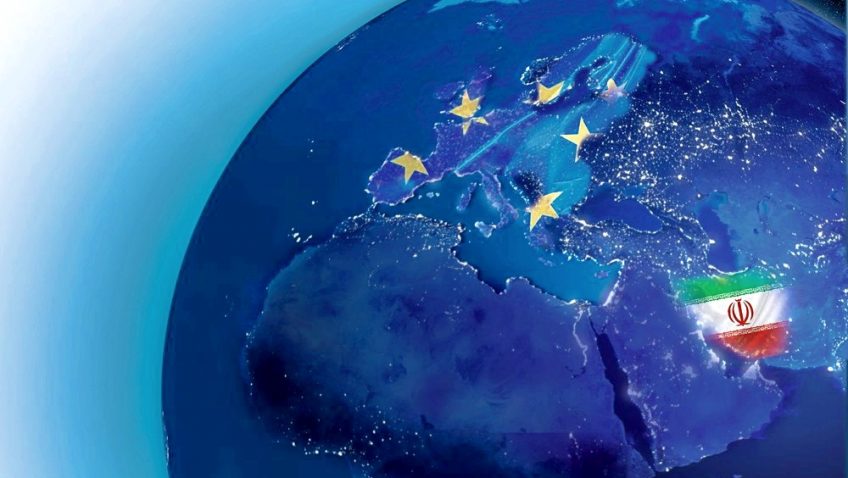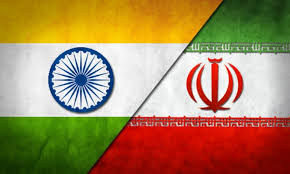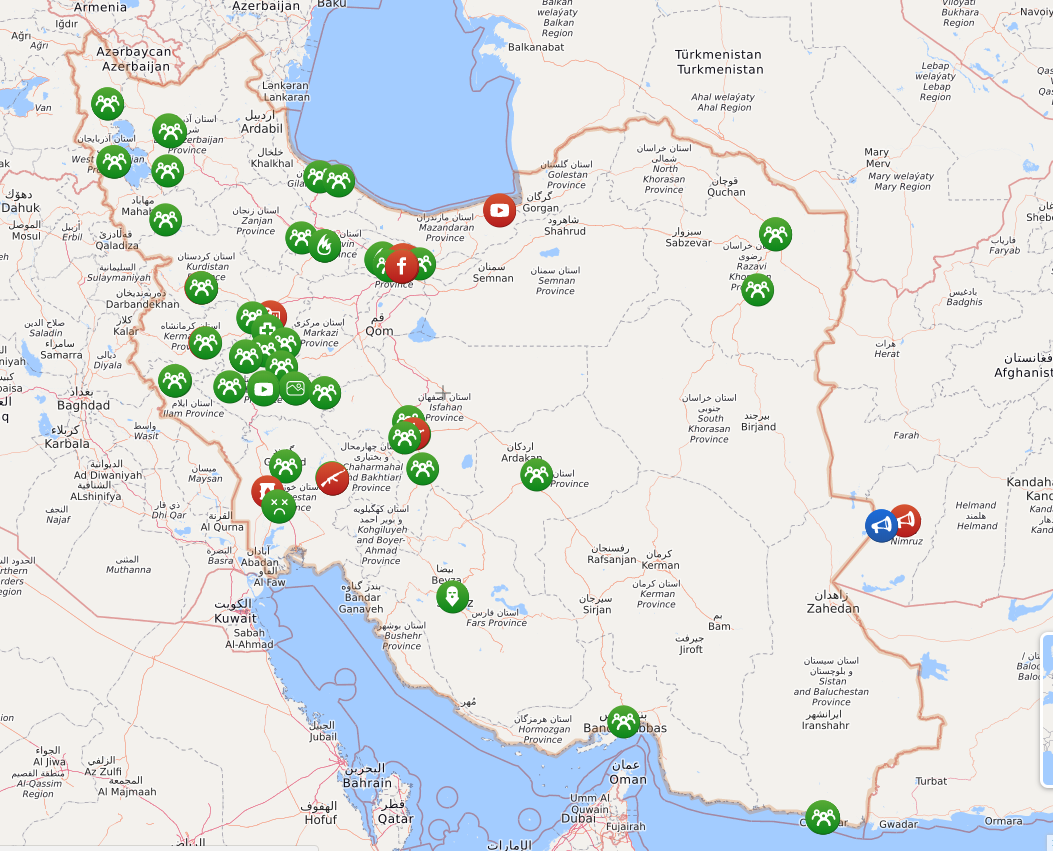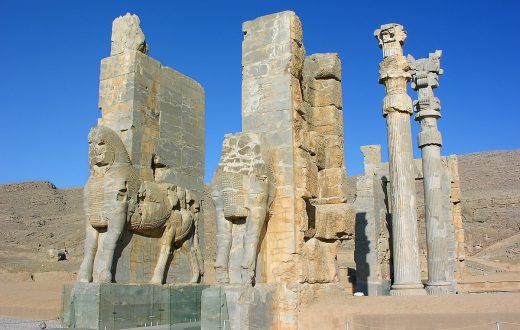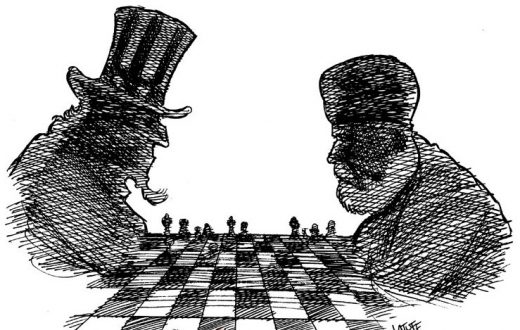Throughout the history, the European Union and Iran had a quite complicated relationship that varied from friendly cooperation to complete isolation. The decision of the U.S. President Donald Trump to withdraw the USA from the nuclear deal has yet again put the ”Iran issue” in the spotlight, several years after the (only) foreign policy success of Obama’s administration. The European Union’s decision to support the deal comes as no surprise if we take into a consideration that this decision is a result of years of distrust towards the United States and their uni-polar moments. Coordination of the EU and Iran relations is done via the Iran Task Force located at the European External Action Service (EEAS) headquarters in Brussels. The Task Force started its work in 2015 after an agreement between Iran and the E3/EU+3, known as Joint Comprehensive Plan of Action (JCPOA) was signed.
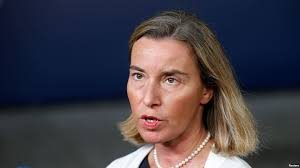
The EU High Representative, Federica Mogherini has a role of the coordinator of the Joint Commission and she conducts bilateral engagements between the two.
After the famous coup against Prime Minister Mosaddeq in 1953, Mohammad Reza Shah became a close ally of the USA and established stronger relations with Western European countries. Prior to the Islamic Revolution, most of the European countries were not so deeply involved in Iran’s military and political affairs like the USA was. France, West Germany and Italy had good economic relations with this country, but at the same time did not view the Islamic revolution as a ”loss” of Iran for the West. Ayatollah Khomeini was even offered a temporary home in France after he has been forced out of the country. In these years, France was generally seen as a “friend of Iran”, even though during the war between Iraq and Iran, the French have sold arms to Iraq. Khomeini’s era was marked by famous slogan ”Neither West nor East but only the Islamic Republic”. For the EU, Iran was an important factor for stability in the Middle East and Iran needed the EU because of economic interests.
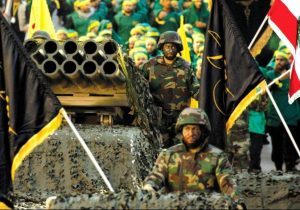
Some of the burning issues that complicated the relationship between the West and Iran in the first several years after the revolution included Iran’s support for Hezbollah in Lebanon and the killing of Iranian dissidents in Europe.
During Akbar Hashemi Rafsanjani’s presidency from 1989 to 1997, the trade relations with Britain, France, Germany and Italy significantly increased. This was an era of cooperation based on finding mutual interests and a common ground, rather than highlighting the differences. Some of the biggest European oil companies such as French ”Total” and Italian ”Eni” decided to invest in Iran despite the U.S. sanctions. During the presidency of Mohammad Khatami (1997-2005), diplomatic relations improved as well. His call for a ”Dialogue of Civilizations” paved the way for deepening diplomatic and economic relations with the EU. At the same time, his promises such as the rule of law, political reforms and strengthening of civil society appealed to the European Union, but most of these reforms were blocked by a more conservative establishment. President Mahmoud Ahmadinejad stressed country’s right to develop nuclear weapons and become self-sufficient in nuclear fuel for its power plants. This angered Western leaders since it signaled clear nationalistic rhetoric. However, the reason for such proclamation was most likely a desire to legitimize the political regime. His successor, president Hassan Rouhani used more pragmatic approach during his efforts to ”lift harmful sanctions imposed on Iran.”
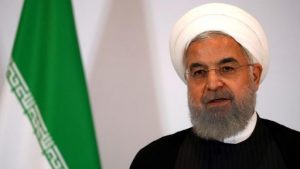
Iran assured the global actors that it will use its nuclear energy for peaceful purposes by ratifying the Treaty on the Non-Proliferation of Nuclear Weapons from 1970, which is supported by the European Union as well. However, in 2003, the International Atomic Energy Agency (IAEA) discovered that Iran is conducting secret activities within a program. Since Iraq war was ongoing at the time and military crisis between the USA and Iran was possible, the EU countries decided to get involved. This has led France, Germany, the UK and the European council to try to resolve this issue through direct negotiations. In that way, in the period from 2003 to 2005, the EU starts to play a strategic role in the Middle East. The EU High Representative joined the talks in 2004. The USA, China and Russia joined as well in order to support it, but Iran could not be convinced to cooperate with the IAEA. The consequence of these actions were several resolutions by the UN Security Council through which it demanded suspension of all heavy water activities and Uranium-235 enrichment. In 2012, the EU enforced an oil embargo coupled with additional sanctions. It was not until 2013 that Iran allowed nuclear inspectors to visit a heavy water facility after they made a deal in Geneva with the P5+1 (Britain, China, France, Russia, the USA and Germany). This deal paved the way for further talks between Iran and the USA. As a part of this deal, Uranium enrichment was put on hold for at least 8 months. At the same time, there are many controversies surrounding the entire nuclear arms talks. The International Atomic Energy Agency did not manage to find any solid evidence on the existence of nuclear weapons in this country since 2011. Many people compare behavior towards Iran with the path that was taken with Iraq where presumptions led to an offensive.
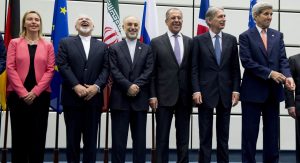
From 2002 until 2015, the main issue which prevented the EU and Iran from developing stronger relations was Iranian nuclear program. Diplomatic solution for the nuclear issue was possible once imposed sanctions on a large number of Iranian insurance companies and banks, together with an oil embargo and denied access to SWIFT, were implemented. Hassan Rouhani, who was previously a nuclear negotiator, won 2013 presidential elections, and his first goal was lift harmful sanctions and come to an agreement with the P5+1. This agreement became known as the Joint Comprehensive Plan of Action (JCPOA). This deal was a turning point in the EU relations with Iran since it paved the way for better cooperation and the country’s position as the largest trade partner in the Persian Gulf region. In January 2016, Atomic Energy Agency (IAEA) declared that Iran fulfilled its duties and engagements, and the EU, the UN and the USA lifted their sanctions. After visits of president Hassan Rouhani to France and Italy in the same month that year, business agreements worth billions of U.S. dollars were signed. Moreover, delegations often traveled back and forth.Ever since the Joint Comprehensive Plan of Action (JCPOA) was reached, it has been evident that Continental Europe is much more keen on working with Iran.
No bilateral agreements exist between the EU and Iran since Iran is not a member of the World Trade Organisation (WTO) so the trade between the two is subject to the general EU import regime. Iran currently has a status of observer in the WTO. Between 2002 and 2005, negotiations for non-preferential Trade and Cooperation Agreement were held, but then put on hold since Iran resumed its uranium conversion program. These negotiations are yet to be resumed without any indications as to when and where. Currently, there is no delegation of the EU in Tehran since it is represented by the state that holds the Presidency of the Council of the EU. In order to become a reliable partner and actor, Iran needs to become a member of the WTO and the EU supports the goal of Iranian accession to the organization. Since 2012, trade balance with Iran was mostly positive. After the visit of Federica Mogherini in 2016, it was agreed that Tehran and the EU will cooperate in the number of different areas such as energy, economy, education and transport. It was also agreed that there will be an attempt to boost the trade to $30 billion. Since most of the EU banks are highly exposed to the U.S. regulators, they are usually reluctant when it comes to bigger investments in Iran, so the smaller European banks such as those in Denmark, Germany, Austria and France stepped in and provided credit lines after the easing of sanctions. German company Siemens signed a deal to modernize railway network in Iran, while British company Vodafone partnered with Iranian HiWeb in order to modernize IT infrastructure.
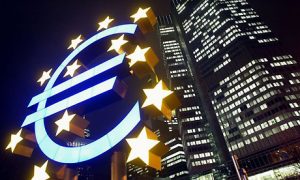
Companies such as Total, Danieli, Peugeot, Citroen, Renault and Volkswagen also announced their own investments. Together with the United Arab Emirates and China, the EU is in the top 3 main trading partners. Germany is the greatest European investor and the most active trade partner in the years both before the 2015 nuclear deal and afterwards. The total trade of the EU with Iran went from €27 billion in 2011 to only €6 billion in 2013. Most of the EU exports to Iran are transport equipment, machinery and chemicals and in 2017 these accounted for almost 70 per cent of the total €10.8 billion worth of goods. On the contrary side, most of imports from Iran to the EU are energy-related. Out of total €10.1 billion, almost €9 billion was spent on energy in 2017. In this period of time, the EU imports from Iran increased by almost 84 per cent. One year later, there was another increase, and the EU imported €11.3 billion worth of goods, while Iran imported €14.1 billion worth of goods from Europe. Many Iranian officials praised the UK’s decision to leave the European Union and this move was generally seen as a potential for trade expansion with Europe.
Iran is a resource-rich country. It has the largest natural gas reserves and the fourth-largest oil reserves in the world. Iran’s energy sector could be additionally strengthened and developed by working with the European commercial partners. It is a well-known fact that the EU gets the most of its gas and oil from Russia, North Africa and Central Asia, but the cooperation with Iran and stability in the Persian Gulf region could provide the EU with a viable alternative energy source, and in this way, lower the leverage of their current suppliers. Iran’s geographic position, namely at the crossroads of Europe, Central Asia and the Middle East, makes it an ideal candidate for conventional shipping routes to the Commonwealth of Independent States (CIS), Eastern Europe and Asia. Moreover, it is located in between the energy-rich Persian Gulf and Caspian Sea. Iran and Europe usually have contradictory opinions concerning these issues: human rights violations, Iran’s support of Hezbollah and arming of the group, Iran’s position on Israel and wars in Syria and Yemen where they support opposing sides.
President Donald Trump declared that the Joint Comprehensive Plan of Action is an asymmetrical agreement, which favors Iran. His administration opts for regional collaboration with Saudi Arabia and Israel, not Iran. Trump’s moves towards Iran suggest a need to influence the idea of regime change, while the attitude of Europeans suggests desire to see behavioral change from the existing regime. The USA is actively trying to find ways in which they could isolate Iran, but European governments want to engage by using soft power tools, namely diplomatic and economic tools. During Donald Trump’s visit to Saudi Arabia in 2017, he openly called for all nations to isolate Iran. Only hours after his statement, the EU high representative could be seen publicly congratulating Hassan Rouhani on his victory. A significant number of European companies also decided to ignore American calls to refrain from doing business with Iran. By opposing the U.S. suggestions, European countries are finding themselves in a rather strange position, where they become strategically more aligned to China and Russia than to their historic allies. The United States and Europe already had a clash in 1990s when they could not agree on sanctions against Libya, Iran and Cuba. Back then, Europeans introduced a Blocking Regulations and issued a complaint with the World Trade Organization in order to protect their businesses from the U.S.
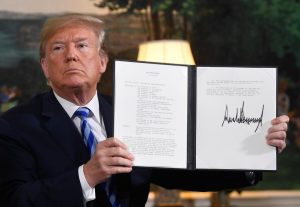
sanctions. Nowadays, Europeans will do the same to protect themselves. Even though the historic allies share many views, the approach of the Trump administration in contrast to the European one is what essentially becomes the stumbling stone in their relationship. Thus, there is a fear that it will be much harder to resolve differences and disagreements now that president Trump has decided to pull the USA out of the deal.
The first instance where relationship between Europe and the USA was strained in the 21st century was in 2003 when the USA decided to go to war with Iraq. Five years later and consequences of this decision were still evident. The lesson that Obama learned was that Europe was no longer unquestionable ally and will not follow the U.S. interests blindly. The latest decision of the EU to preserve the Iran nuclear deal is another instance where the U.S. interests are not blindly followed by the European leaders. Measures that will be taken to keep the deal in place and even deepen economic relations with Iran were immediately presented at the summit in Sofia right after the news broke out. The overall EU foreign policy towards Iran can be used in a wider context of demise of the U.S.-centered power in the North Atlantic and emergence of Europe as an area that is less dependent on the Russian oil, with the strong desire to preserve its own economic interests.

